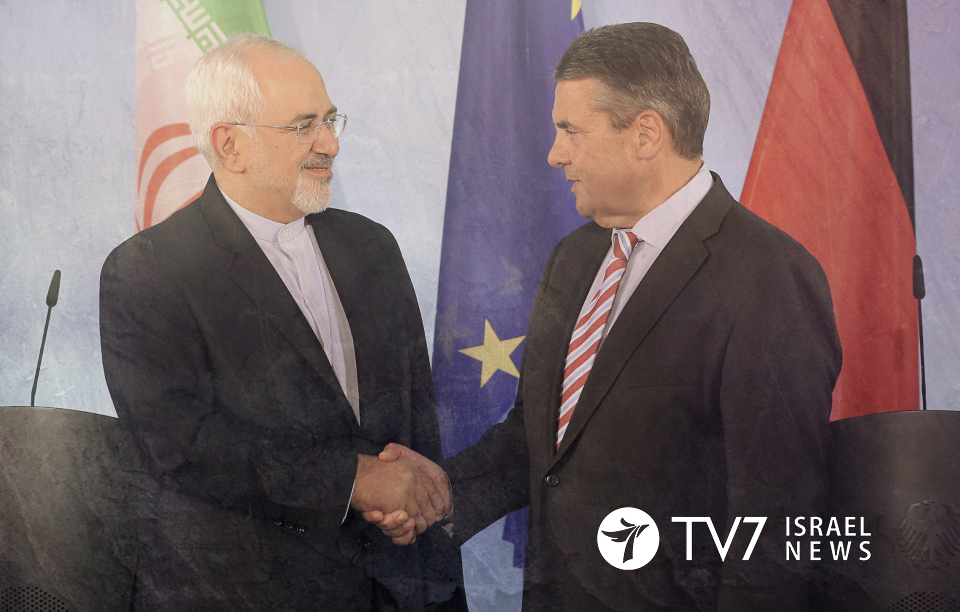German Foreign Minister Sigmar Gabriel met with his Iranian counterpart, Muhammad Javad Zarif, during which Berlin’s top diplomat condemned calls by the regime in Tehran for the annihilation of the Jewish state; declaring that Israel’s right to exist is not negotiable.
“I have also made it clear today – this is a controversial debate between the two of us, also on the occasion of my visit in Tehran, but in Germany this is a very serious position – for our country Israel’s right to exist is not negotiable,” said Gabriel.
With regard to the Islamic Republic’s role in the various conflicts across the Middle East, Foreign Minister Gabriel urged Tehran to play a more constructive role in bringing an end to regional instability and bloodshed.
“We hope and expect from Tehran that developments will be achieved in this way, Iran must play a constructive role as well as the neighboring countries and of course there are also issues of importance above national interest, in Syria as well as in Iraq, in Lebanon and in the Middle East conflict,” said Gabriel.
Foreign Minister Gabriel further noted that Berlin and Tehran have intensified their economic ties, in a mutual effort to take advantage of the possibilities that arose following the signing of the nuclear agreement; which effectively lifted international sanctions on the Islamic Republic.
“I have already said that we have intensified our economic ties. We still have to work out some issues on the basis of our financial relations, but for example we are working closely with the KFW bank (reconstruction loan corporation bank) in Germany to financially cover big Iranian projects, in which also German companies are involved, so that the possibilities of the nuclear agreement can be realized for both sides,” said Zarif.
Iranian Foreign Minister Zarif took the opportunity to condemn the isolation of Qatar by its Arab neighbors, emphasizing that the use of sanctions and blockades against neighbors was not a constructive way to assert national interests.
“I believe what is needed for all countries in the Persian Gulf region is to engage in dialogue and I believe problems, issues, differences cannot be resolved through imposition of pressure and sanctions and blockades. I think neighbors are not a choice, they are a fact. And we cannot change this fact, fact of geography is a fact of geography. Our region faces asymmetries. Asymmetries of size, asymmetries in power, asymmetries of wealth. And it is best to resolve these asymmetries through confidence building measures and through dialogue and not through rupturing diplomatic relations or economic relations or imposition of pressure,” added Gabriel.
The Iranian Foreign Minister’s comments did not point to the fact that Iran was using far more dangerous methods to exert its dominance on its neighbors, a reality that has strongly contributed to the chaos raging across the Middle East.
